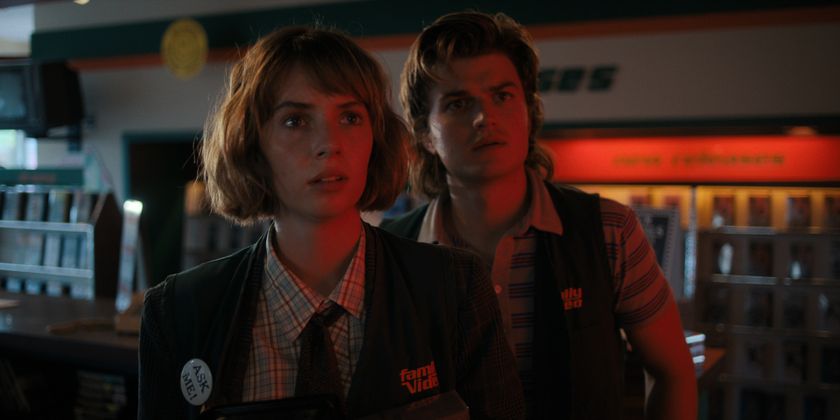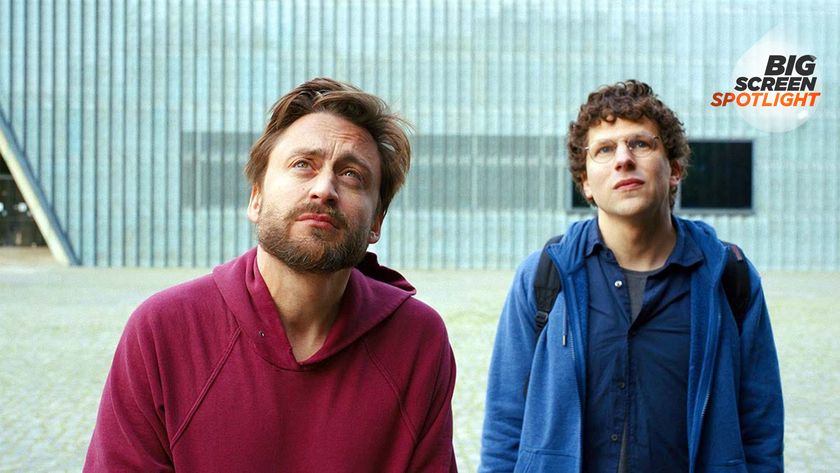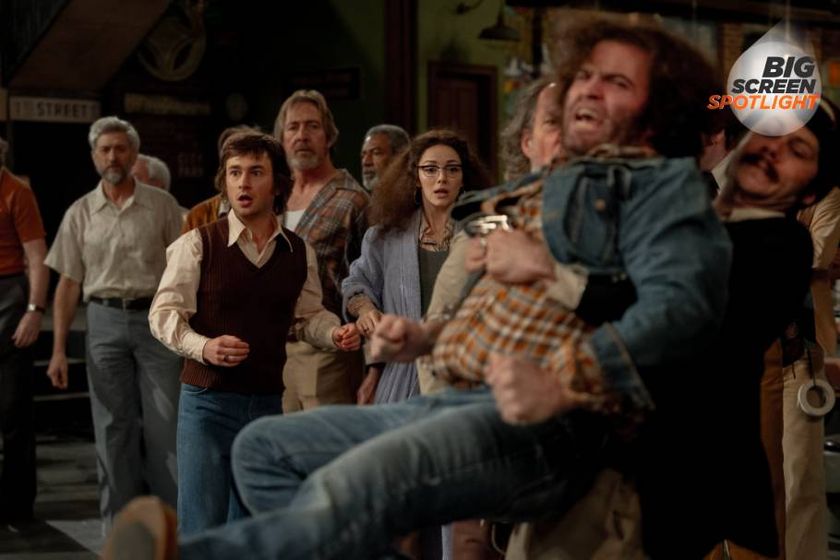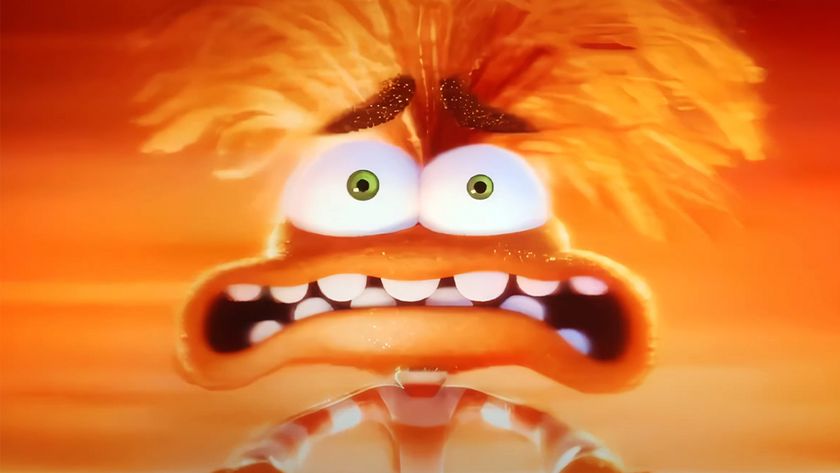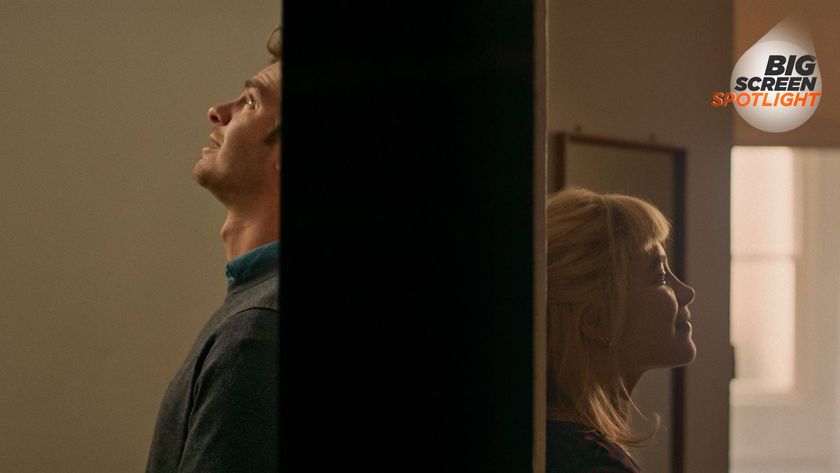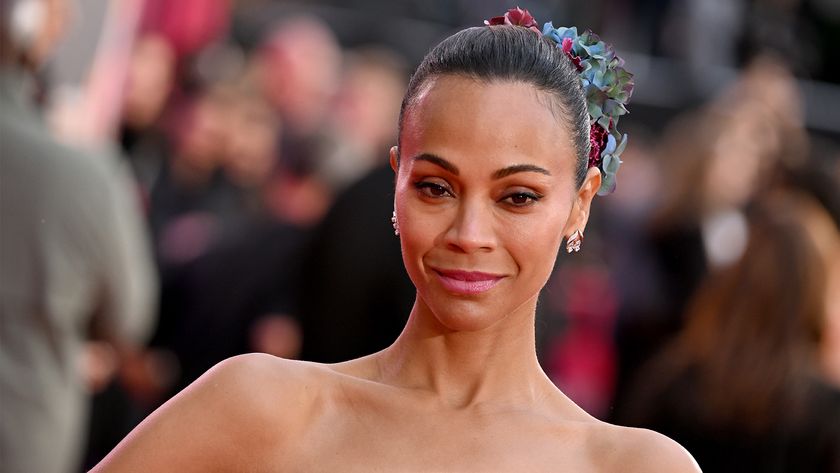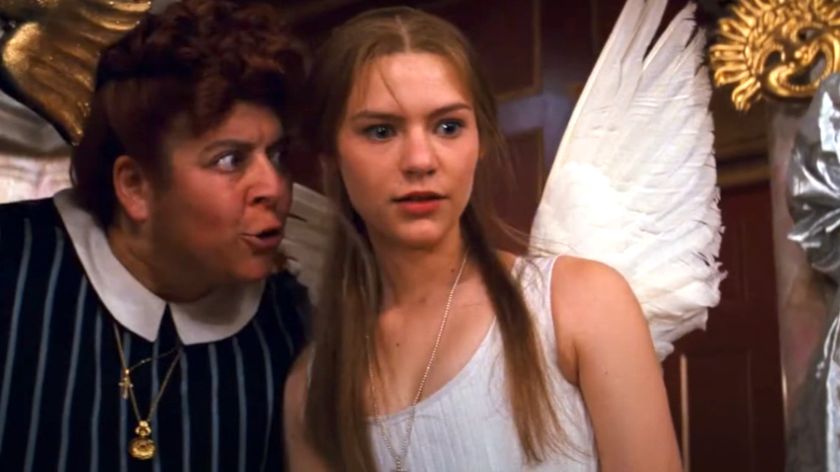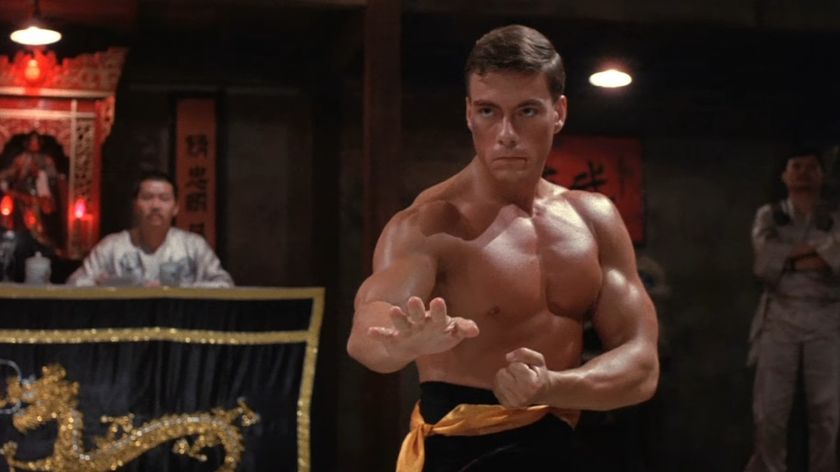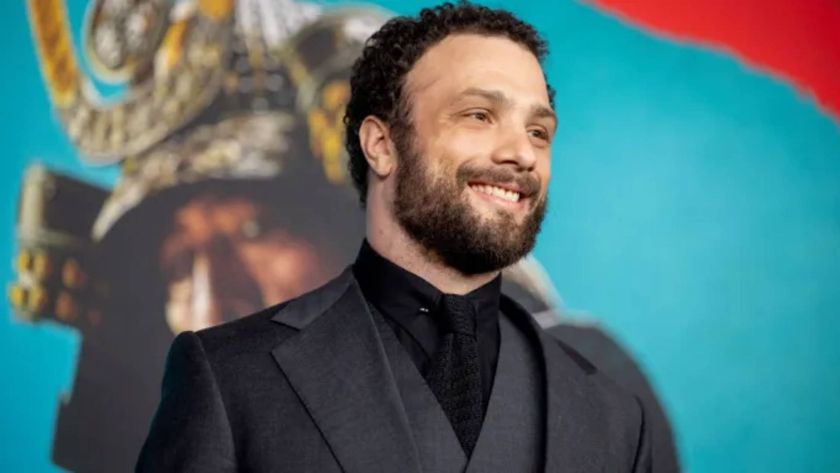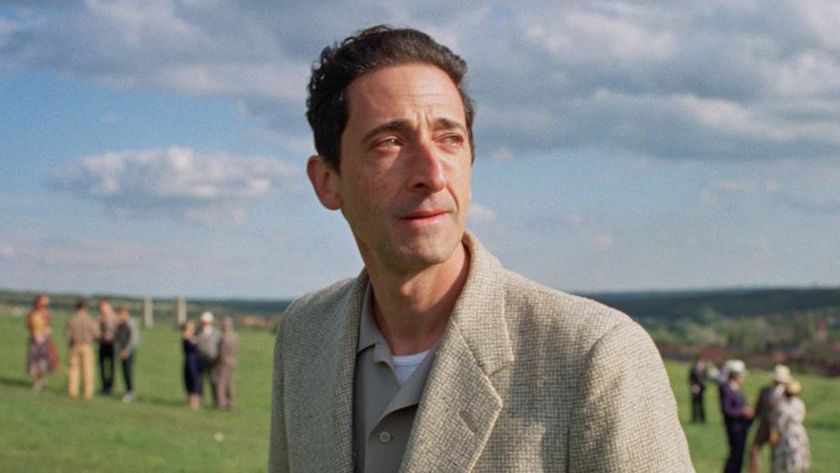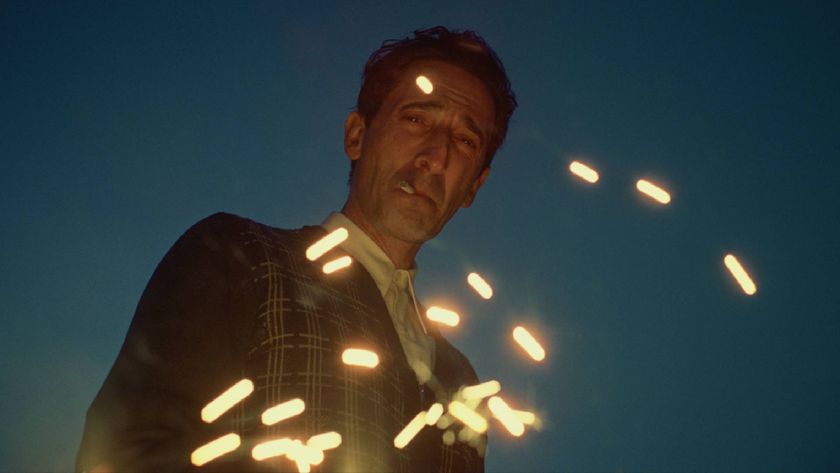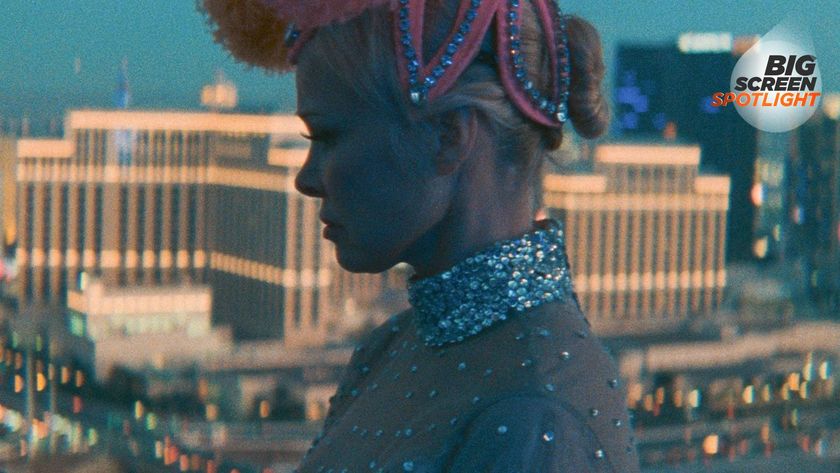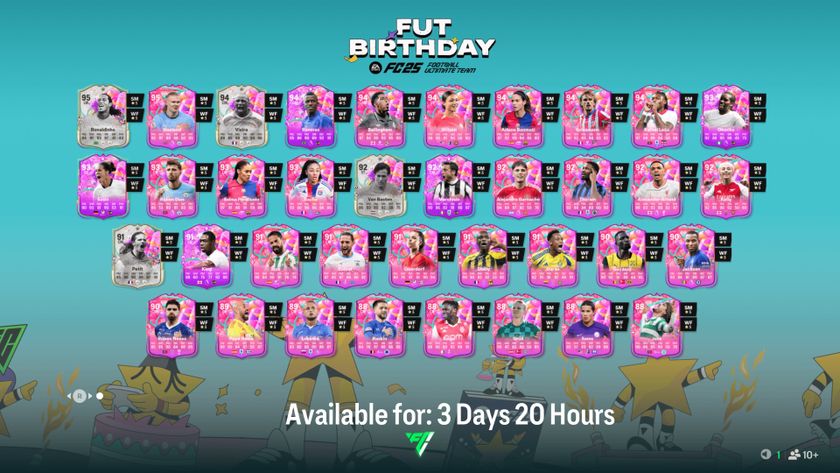How a movie about the absurdity of influencer culture became a meta viral sensation
Exclusive: Total Film speaks to writer and director Quinn Shephard about her new movie, Not Okay
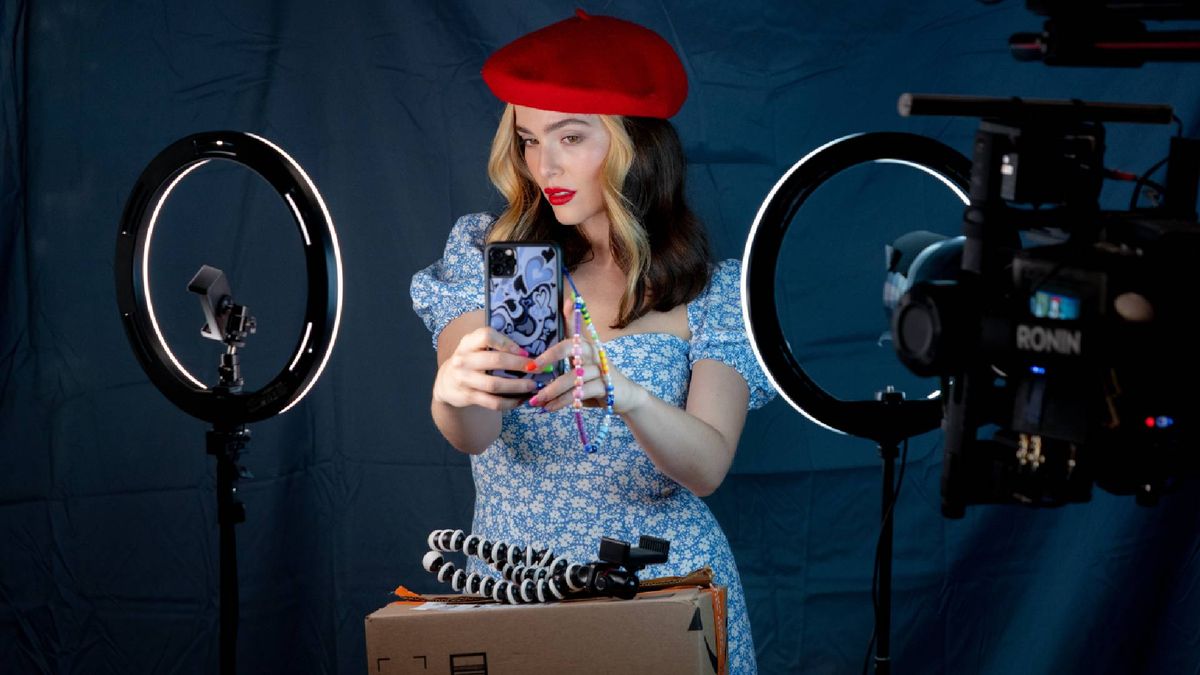
What better way to market a movie about our obsession with influencer culture than through social media? That’s what Not Okay’s writer and director Quinn Shephard, previously best known for acting in The Miseducation of Cameron Post, thought when she set up a TikTok account to document the movie’s shoot back in 2021. But what she didn’t realize was how far it would reach.
The filmmaker set up the movie’s TikTok with her star Zombieland 2's Zoey Deutch, where the pair began posting videos mimicking TikTok trends. It was a success from the start, with the first few entries landing more than 100k likes. Then things started to go wild. They posted a video of Tyler O’Brien, best known for Teen Wolf, transforming into his Not Okay character, Colin, a peroxide blonde influencer who adopts a "blaccent", compulsively vapes, and is obsessed with creating content. All in all, he’s dreadful – but people loved the look, sending the likes skyrocketing into the millions as followers begged for more content. Before the filmmakers knew it, the account had attained influencer status with 318k followers and 11 million likes.
"It feels very meta," Shephard tells Total Film. "It was funny because the first way that a lot of people found out about the film was through this very silly video that we made. But it felt so appropriate for the film to come in as like, 'Oh, it's a movie about fun influencers and crazy style.' And then you actually get sucked into the world and realize that it's about way more than that."
Not Okay follows Danni Sanders, a young woman desperate for fame and friends who fakes a trip to Paris to gain followers on social media, and to impress her co-worker Colin. Utilizing Photoshop from her New York City apartment, she posts pictures of herself in front of landmarks around the French capital, including the Arc de Triomphe. However, when a bomb explodes at the spot she’s just posted an image from, everyone mistakenly assumes Danni is one of the survivors.
Caught in the lie, she decides to go deeper, lying about being there and concocting a story about her traumatic involvement in the terrorist attack. The resultant movie is a blistering satire of influencer culture and our reliance on social media, as well as an exploration of co-opting trauma that isn’t our own.
"There’s a lot of darkness in the film," Shephard says, "but there's also a lot of absurdity. That's sort of our existence nowadays." The filmmaker explains how she loves operating in this gray space between the dichotomies of modern life, and that obsession what spawned the idea for Not Okay. Back in 2018 she was scrolling Twitter for inspiration on what to do next.
"I just felt like every day I was getting up and checking my phone and seeing these crazy horrible news stories, but next to influencer ads and like, 'Try this new teeth whitener,'" she recalls. "It was just the bizarreness of the world that we were existing of those two realities constantly intertwining."
Sign up for the Total Film Newsletter
Bringing all the latest movie news, features, and reviews to your inbox
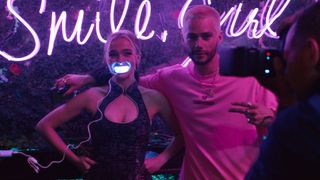
Shephard wanted to tackle this darkness and lightness in a satire, drawing on influences of everything from Heathers to Nightcrawler, with a touch of I May Destroy You and Fleabag. "There are so many incredible films that both have dark satire and humor and also deal with a lot of very human aspects of our lives,” she says. “So with Not Okay, I really wanted to try tackling something like that."
The resulting movie operates in the bright and vibrant world of influencer culture framed through its vapid protagonist. Her unsavory nature is best summed up in a brilliant opening sequence where she pitches an article entitled, 'Why Am I So Sad'. Her bullet-point list includes the lamentable fact that her parents had taken her on a cruise when 9/11 happened, thus exempting her from the trauma of living in NYC during the tragedy. When her editor brands it tone-deaf, she questions, "Can’t tone-deaf be a brand?"
"Danni is there to make a statement, just like so many satire characters are," Shephard explains. "She is there to represent something very toxic and important to talk about in our culture. I'm a big fan of unlikable female characters. Women are allowed to have flaws and we’ve got to stop thinking that women have to be charming and perfect and sweet to be the protagonist of films because that's not always true."
However, Shephard knew it would be hard to sit with Danni for two hours on her own. "It was always important to me that if I was going to have a character like Danni at the center, somebody who's like pure privilege and completely unaware of how she comes off, I really wanted her to be counterbalanced by the secret hero of the story – somebody who really has lived and understands the world that Danni is trying to exploit."
Enter Mia Isaac’s Rowan, a school shooting survivor who Danni meets at a trauma survivor group. Initially unimpressed with her, Danni quickly changes her tune when she realizes Mia’s huge follower count. Their stories intertwine and, without getting into spoiler territory, it all concludes in a powerful sequence.
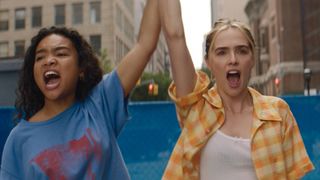
Shephard admits it was "really hard” to land the ending for this story. She had to film multiple versions before she ended up going with something completely different than any of their initial ideas. "We were never going to give Danni a full redemption arc and we were never going to have an ending where she and Rowan hug and everything is forgiven,” she says. “I think that's like really letting her off the hook, far more than I wanted to."
However, she wanted to make sure the movie still ended in a "satisfying" way for viewers. "As a society, I still don't think we know what to do with people like Danni," Shephard says. "I think ultimately, the ending of the film in my mind represents the very, very first step that she, and maybe anyone in the audience who sees themselves in her, might take on their journey to looking inward and becoming a slightly better person. But it doesn't imply that she is going to get off easy."
Perhaps Not Okay’s greatest achievement is that for all the humor and satire poked at influencers, it doesn’t end with a message portraying a bleak future of social media. "This isn't a takedown of influencers, it’s not a takedown of your phone," Shephard says. "I do think what happens with the internet is that there's a lot of good, there's a lot of horrible stuff, and it's like an echo chamber that just amplifies a lot of the unrest and conflict that we're all feeling right now.
“In the film I wanted to really show all of the sides of the internet – the side of the internet that celebrates people like Colin and Danni at her worst and allows her to be that person, but then also the side of the internet that is being used for good, like how Rowan uses her platform for activism. It's not Instagram’s fault, it’s just a mirror for culture."
Not Okay is available to stream on Disney Plus and Hulu now. Check out our guides to the best movies on Disney Plus and the best Hulu shows for what else you can watch.

I’m the Deputy Entertainment Editor here at 12DOVE, covering TV and film for the Total Film and SFX sections online. I previously worked as a Senior Showbiz Reporter and SEO TV reporter at Express Online for three years. I've also written for The Resident magazines and Amateur Photographer, before specializing in entertainment.
